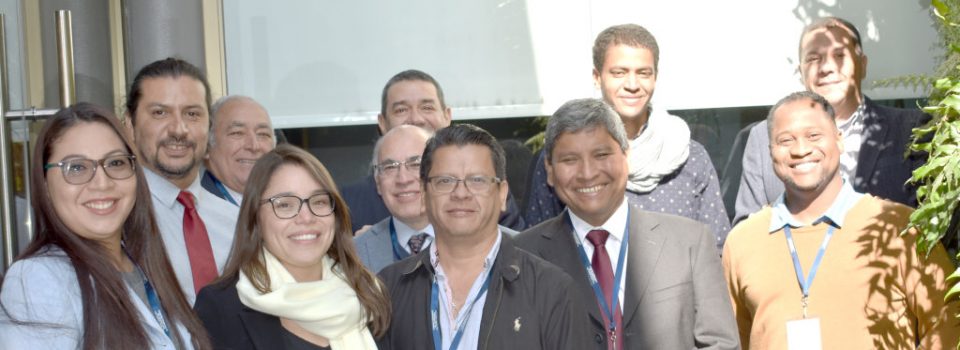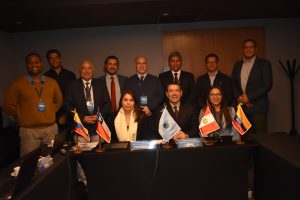Regional Shark plan implementation Progress
September 30th, 2019In Santiago, the shark, ray and chimera technical scientific committee , regional plan of Permanent South Pacific Commission (CPPS) meeting was held, with the purpose of guaranteeing sharks conservation and management and their long-term sustainable use.
It was organized by the South Pacific Permanent Commission ; scientists from Colombia, Ecuador, Peru and Chile participated
Miguel Romero, a researcher at the Institute of the Sea of Peru, commented “at the meeting we are developing a series of actions in order to better address the conservation and sustainable use of sharks in the South Pacific, respecting the global agreements that involve these species. In these assemblies, we show the progress by country in these aspects and enrich ourselves from the experiences of associated countries ”
Patricio Barría researcher of Fisheries Development Institute , explained “we are in the technical scientific committee of the regional shark plan that is carried out within the framework of the South Pacific.Permanent Commission. Each country shows its progress, both in terms of research, control and fisheries management in these resources; In Chile we have a national shark action plan and we are adhering to the regional shark plan that has been in effect since 2010. This plan gives us the basic conservation guidelines for these species, regarding research, control, management, aspects socio-economic, training and dissemination. Substantial progress has been made in Chile, there is legislation in this regard, such as the Law of finning that prohibits mutilation, taking sharks fins and returning them to the sea is now a crime; we have protected the great pelagic sharks, such as the white shark, the whale shark, the basking shark are species protected by Chilean Law and there are a series of fishing gear and gear regulations, since Chile as a fishing country exploits these species of sharks, rays and chimeras that are caught as companion fauna in the various national fisheries ”.
Camila Bustos from the Fisheries and Aquaculture Subsecretariat of Chile added “this meeting is held every year since, in it, the topics of condrict at the regional level with the CPPS countries are discussed, we are looking at the CITES issue that is very relevant, where the shark (Isurus oxyrinchus) was added to Appendix II of the Convention on International Trade in Wild Fauna and Flora (CITES), which means that for our countries there are a number of requirements that we have to meet, so it is important to work together. Among these requirements we have to make a non-detriment assessment for sharks, which means having a stock assessment of this highly migratory shark, which we currently do not have in Chile. The remarkable thing is that in the region we are agreeing to make scientific recommendations ”
Heins Bent official of the Ministry of environment and sustainable development of Colombia said “the meeting is an important space in which we work on issues related to the conservation and management of sharks and the scientific advice that can be given to the different countries of the region South Pacific”
Carla Bravo of the Vice Ministry of Aquaculture and Fisheries of Ecuador said “we think this type of meetings at the regional level is very interesting since new species have recently been incorporated in Appendix II of CITES and therefore we need measures for their conservation and management, CITES regulates international trade, exports of this type of shark ”
Marcelo Nilo, CPPS scientific affairs Director said “the meeting we are holding is within the framework of one of the working groups that depend on the scientific direction; our role is to generate the enabling conditions so that the States have a forum for scientific discussion that supports the regulatory measures in which each State is involved ”.

